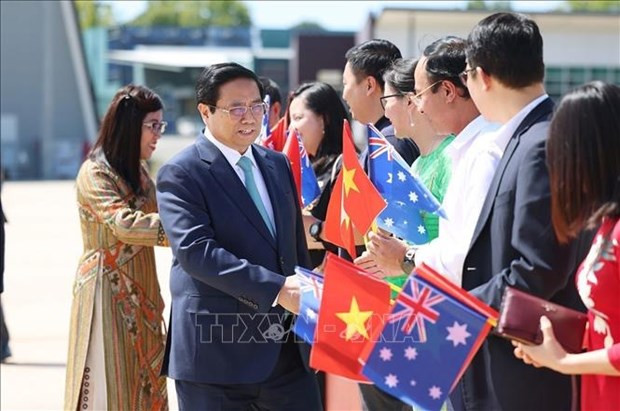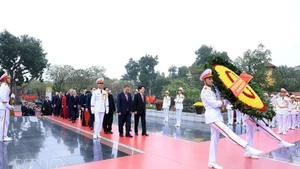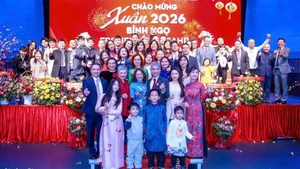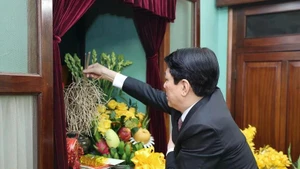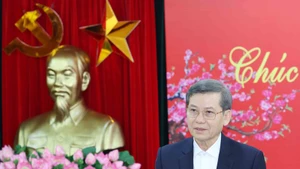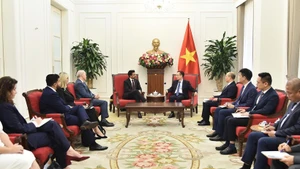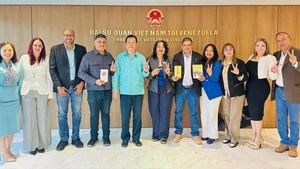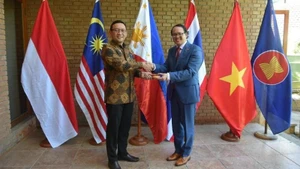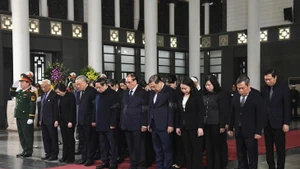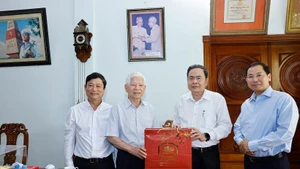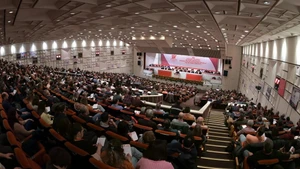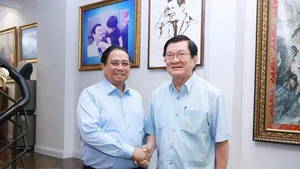Talking to the Vietnam News Agency (VNA)'s resident correspondents in Australia, Prof. Carl Thayer from the Australian Defence Force Academy, the University of New South Wales, said the upgrade of the bilateral ties to the comprehensive strategic partnership reflects the mutual respect for each other’s political regimes. Economic benefits have brought the two countries closer together for the sake of a broader strategic interest.
The new partnership will generate opportunities for more intensive discussions about various issues between Vietnam and Australia, he said, noting that the majority of Australian people support the reinforcement of the ties with Vietnam, especially in education.
The scholar held that Australia will prioritise cooperation with Vietnam and promote dialogue. The two sides can jointly put forth and share ideas at different dialogue levels. All of these will serve the two countries’ shared future amid such challenges as climate change, economic uncertainties, and superpowers’ competition facing the world and the region.
Both sides will jointly gain benefits if they understand those challenges and find out the best ways for promoting the most effective cooperation via bilateral and multilateral mechanisms in which Vietnam engages and has a strong role to play, Thayer added.
Greg Earl, former member of the Australia - ASEAN Council and former Southeast Asia correspondent at the Australian Financial Review, perceived that the elevation of the bilateral relations to the comprehensive strategic partnership will create a prerequisite for Vietnam and Australia to enhance diplomatic ties more strongly and hold dialogues on regional issues.
In fact, he noted, the two countries have found out ways to build closer and closer relations, which are based on complementary economic policies and the large Vietnamese community that has helped deepen Australia’s understanding of the Southeast Asian nation.
The ties with Vietnam form one of the fastest growing foreign relationships of Australia over the recent past. Despite different political regimes, the two countries share many similarities in their foreign policies towards the region.
In addition, Vietnam is investing in resources of Australia, which in turn is importing more products from Vietnam. This has helped Australian businesses become more familiar with Vietnam, according to Earl.
Voicing his delight at the establishment of the comprehensive strategic partnership, Hal Hill, Emeritus Professor at the Crawford School of Public Policy at the Australian National University, described this as a positive sign for the future of both countries. Though they are not geographically close to each other, they can seize this opportunity to develop durable relations and mutual understanding in all aspects.
He said Vietnam has enjoyed sound relations with most countries and secured an important stature in the international arena, setting an example for other countries to follow.
Besides, Vietnam is considered as an economic “star” in Southeast Asia and the most successful country in this region in terms of entering the global production network – the fastest growing part of international trade. Many multinationals have come to Vietnam and carried out production activities here.
Given this, Hill held that Vietnam is a great opportunity for Australia.
The professor said in terms of political and social aspects, Vietnam is a dynamic and active country which used to be one of the poorest in the world in the 1980s but thanks to Doi moi (Renewal), it has established itself as a diverse economy with large rice exports and successful agriculture and fisheries.
With PM Chinh’s visit and such optimistic signs, a new era has opened for closer relations between Vietnam and Australia, he remarked.
